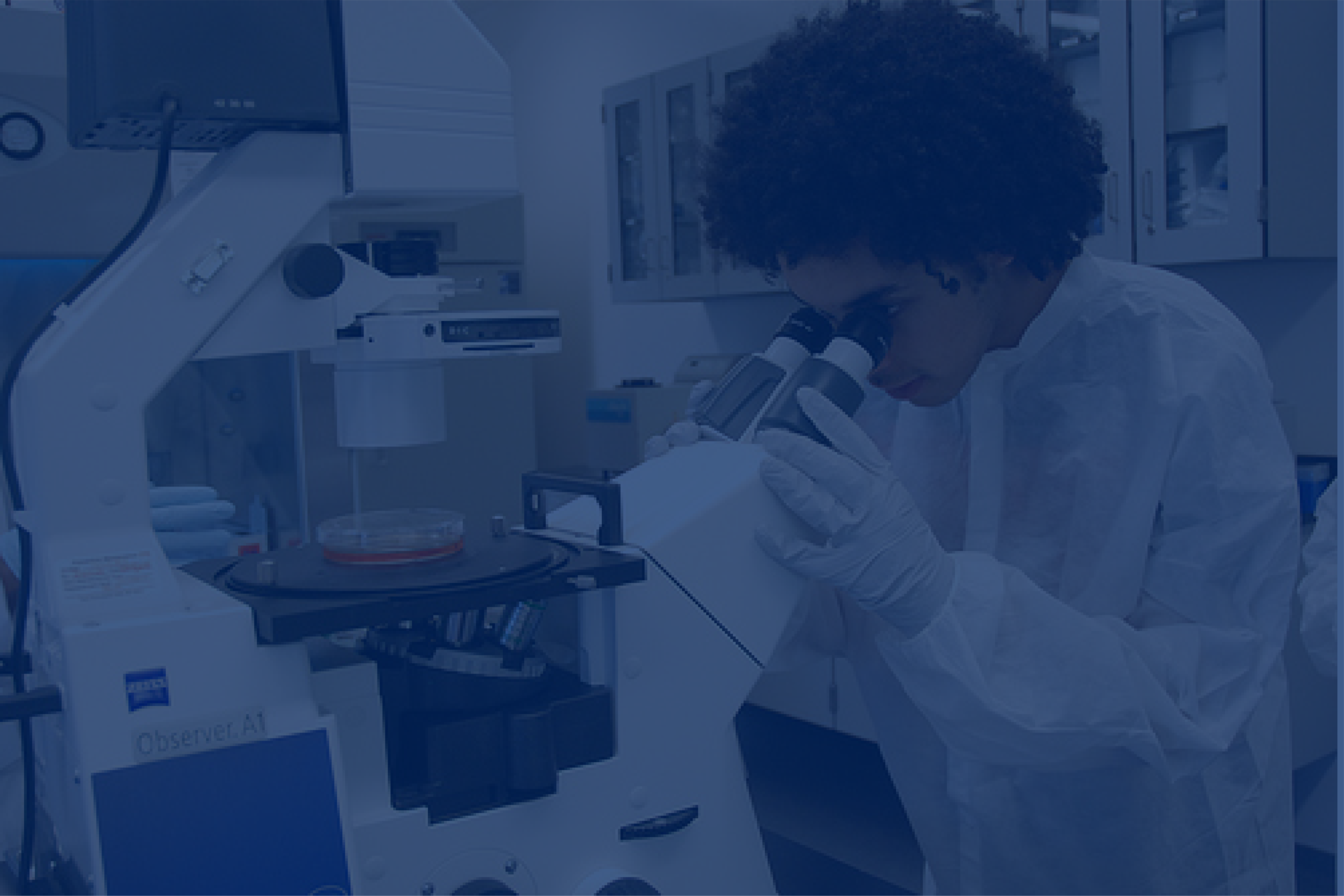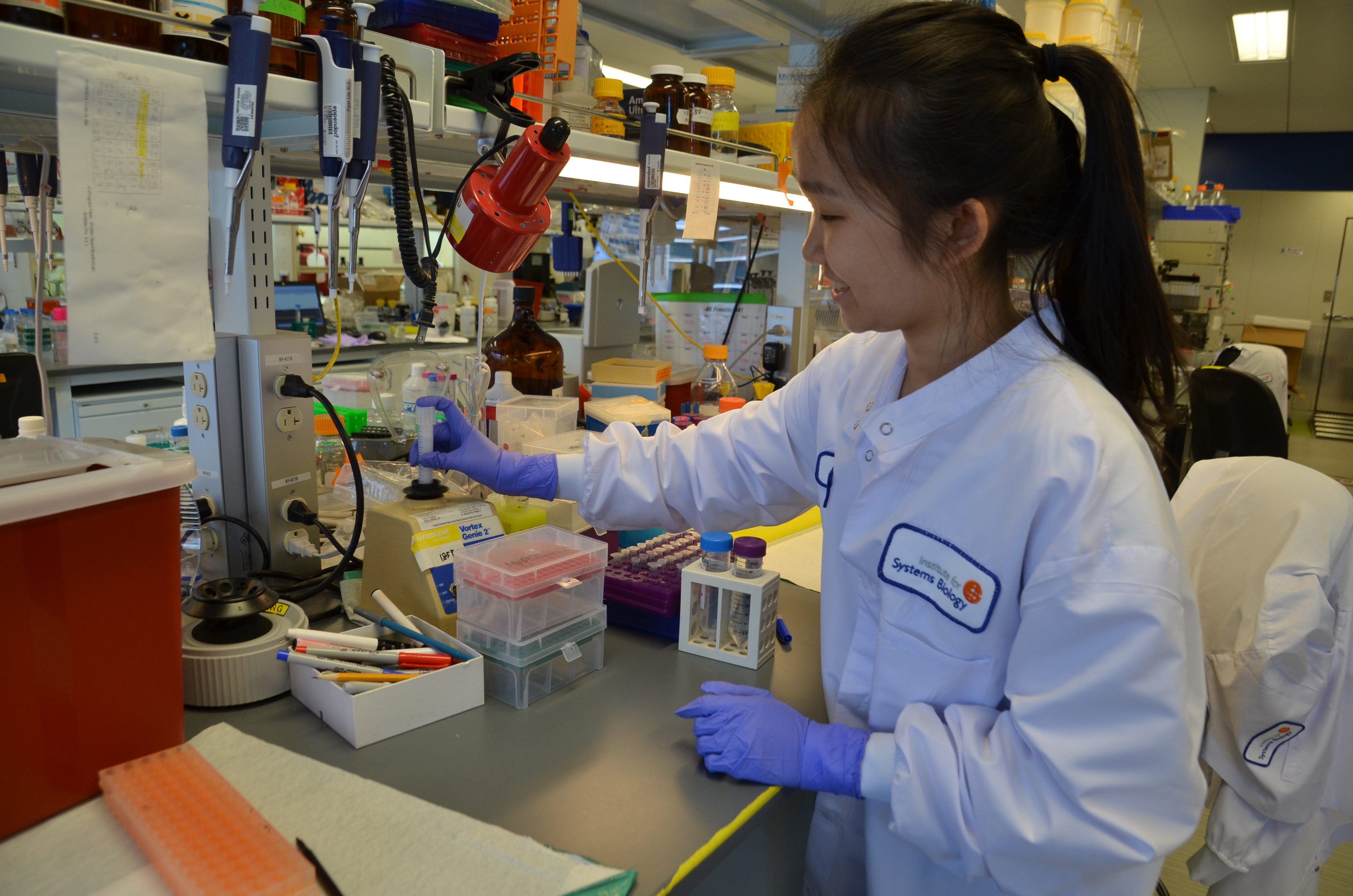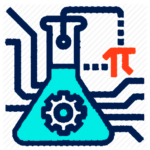High School Intern Programs

There are many opportunities to work with Systems Education Experiences and ISB
One of the key objectives of ISB involves transferring knowledge gained through research to the community for the benefit of society. A second objective is to inspire and prepare the next generation of researchers. The Systems Education Experiences (SEE) program that operates within the Baliga Lab and across ISB meets and surpasses these objectives through a variety of internship and ambassador programs.
This year we will offer 2 opportunities for high school students. These opportunities will be a mix of in-person and virtual experiences. They begin as soon as this spring and extend potentially throughout the academic year. The application for all of these opportunities is the same. This means your one, complete application will allow our hiring committee to consider you for all of the opportunities that you are eligible for and interested in.
Details on the programs are below. Please read all information available before contacting our staff with questions – the Frequently Asked Questions (FAQ) page should be especially helpful, as well as our Tips & Tricks for Professional Communications. We receive over 300 applications, so put forth your best work throughout the application process in order to improve your chances of being selected to participate.
OPEN ENROLLMENT:
1) Systems Thinkers in STEM Ambassadorship (STiSA)
Current 10th and 11th graders are eligible to apply for STiSA. All applicants who complete the full application will be accepted into STiSA and can choose whether or not to participate. You can participate in both STiSA and the internship, should you be selected. As a participant, you will first be invited to attend a 2-hour, virtual workshop: “Systems are Everywhere.” You will learn about systems modeling and how systems thinking is used in research and careers. You will then have the opportunity to enroll in one of two virtual micro-courses: “Introduction to Systems Medicine” or “Environmental Systems, Research, and Stewardship.” From there, you will be invited to participate in other courses including the final virtual micro-course of the series, “Learning in Motion: Taking Action in Your Community.” These workshops will be held several times throughout the spring and summer. The invitation to these workshops will come to the email address you share with us in your application materials. After you attend a 2-hour workshop, you will be invited to join an interactive Slack channel. This will allow you to stay connected with our team, and to this year’s cohort of ambassadors, to hear about upcoming opportunities to advance your systems thinking in STEM. These opportunities will be a combination of virtual and in-person offerings that you can participate in according to your interest and availability. See this page for more information.
COMPETITIVE OPPORTUNITY:
2) 8-Week, In-Person Summer Internship for Rising Seniors
Current 11th graders only are eligible to apply for ISB’s paid 8-week (~300 hours) formal summer internship. This summer’s possible internship topics include but are not limited to: computational biology (which can include scenarios in health and/or the environment), microbial interactions, resilience and collapse of complex systems, the microbiome, microbial evolution, cancer, systems medicine (medicine that is predictive, preventative, personalized and participatory), and bioengineering with algae. All projects are aligned with a current ISB project which is driven by a mentor. Students will learn about systems biology and apply their learning to a research project. Depending on the project, students will also learn and/or deepen their understanding of scientific, engineering, math, coding, leadership and other professional and computer-based skills. All projects also include: a) interviewing ISB professionals to learn about various career paths, b) building a website that describes the internship project and experience, and c) helping out with school-based curriculum development if pertinent. We will hire 4-10 temporary High School Interns to work in the Baliga Lab and/or in other ISB Labs. This position will tentatively begin June 30 and end on August 22, 2025 (no work on July 4). The Interns will work up to 40 hours per week. Service learning/volunteer and paid positions will be available. Paid interns will receive a stipend of $5,000, split into 3 payments across the summer, that will cover the entire 8-week experience. Please continue reading for more information.
More information on the 8-week, in-person summer internship:
In this internship, high school interns complete systems biology research and, if applicable, help develop hands-on instructional modules for students to use as part of school-based science curriculum.

Each January, Systems Education Experiences posts a job opportunity on the ISB careers website, enabling high school juniors to apply for a competitive, paid summer internship. This internship is very different than those typically found in research labs. The systems biology approach allows students to work with many specialists, directly involving the students in a variety of projects, using many types of technology and techniques. Students gain valuable microbiology, engineering, and computational experience. Due to the unique nature of this curriculum building and research-based laboratory experience, students are highly engaged in creative problem solving as well as both independent and group learning. The internships are focused on bringing these key opportunities to students who typically would not have access to a professional work environment and a state-of-the-art research lab.
In addition to the scientific and educational components of their 8-week internship, students also meet with a variety of the ISB staff allowing them to explore many types of professions and career paths. Who they speak with is up to the students, but usually, students meet with faculty members, research scientists, as well as administrative, legal, development, financial, and ISB’ers. In addition, they participate in a STEM Leadership program.
The program has been highly successful and is externally evaluated promoting the best experience possible. Jessica, an intern who went on to attend UC Berkeley, had the following to say about her time at ISB. “I learned how to work collaboratively in a lab setting. It was also great to get a feeling for what it is like to be a research scientist. I realized that I can come into something being completely ignorant and gain an understanding of what is happening by asking questions and doing research.”
“This was a really great thing to realize because it made the knowledge of people in the lab seem a lot more accessible to me and a more realistic goal,” Jessica added. “It taught me that I can, although it will take a while, become as knowledgeable about science as the researchers in the lab.”
To showcase their work and to document their experience, students learn from a skilled web designer to develop their own web pages. View the pages to learn more about what the interns do during their summer at ISB. If you are wondering what a standard day might be like for an intern, the 2012 interns put together a quick glance into a typical day at the end of their About Us page. Our 2014 interns also put together a page with information for applicants. For more student comments on the internship, please view this short video featuring our 2011 interns and the above-referenced video featuring one of our 2016 interns. For general information and intern news items, see our main ISB Webpage and search using appropriate terms, such as “intern” and/or topics you are specifically interested in. Also, see the SEE and ISB YouTube channels for more videos that highlight our science and experiences. As an example, these two videos by Amy Zamora (here and here) specifically speak to how ISB is different from other institutes for young scientists.
If you have questions, please view our frequently asked questions (FAQ) page. You can also view this 3-minute video for more information on SEE and our 8-week internship.
Even years after their internships, students stay in touch. Sue Yi, a 2008 intern, emailed us after she completed her BS at the University of Notre Dame in 2014. She was preparing to enter an MD/PhD program and wanted to let us know that her high school internship was, “…a great experience and really good to get started early. My experience in the Baliga lab is what inspired me to try research out in college and look where that has led me!”
If you have questions that are not addressed in the web materials and resources, please contact our team at see@isbscience.org.


